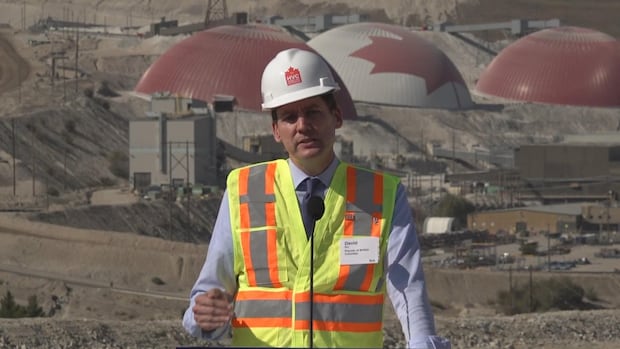New Hampshire Grapples with Data Center Boom Driven by AI
The explosive growth of artificial intelligence is fueling unprecedented demand for data centers across the globe, including the United States. As data center development accelerates, New Hampshire legislators and regulators are carefully considering the implications for their state and its aging electric grid.
An Emerging Market or an Environmental Threat?
Data centers, large facilities consuming vast amounts of energy to house computer networks, are becoming increasingly prevalent. Craig McGahey, a data center developer, addressed New Hampshire lawmakers and energy professionals at the 2025 New Hampshire Energy Summit, highlighting the impact of AI on this trend. According to McGahey, the competition among "hyperscalers" like Google, Meta, and OpenAI is a primary driver.
Nationwide, data center construction is at an all-time high, and the U.S. currently leads the world in the number of such facilities. However, New Hampshire lags behind, with only ten relatively small-scale data centers as of September 2025, placing it in the bottom fifth nationally.
While low power availability and high electricity costs have historically deterred data center development in New Hampshire, some consider the Northeast an "emerging market" for these facilities. Developers are evaluating regulatory environments, land availability, and power supplies in various states to determine suitable locations.
Legislative Divide: Opportunity vs. Concern
New Hampshire lawmakers are divided on whether data center development represents an opportunity or a concern. Some legislators emphasize potential property tax revenue and employment benefits, advocating for a regulatory environment that attracts data centers. Rep. Doug Thomas, vice chair of the House Science, Technology, and Energy Committee, believes New Hampshire should actively "court" these businesses.
Rep. Michael Vose, chair of the House Science, Technology, and Energy Committee, also highlighted construction and job creation as key benefits. McGahey estimates that a data center in New Hampshire could employ up to 40 full-time employees, with potentially hundreds more during construction.
However, some question the scale of job creation and the environmental impact. Rep. Thomas Cormen, a member of the same committee, suggests that data center employment may not scale proportionally with size and that construction jobs are often temporary. Sen. David Watters raised concerns that data center jobs might not offer significantly better pay than existing industries.
Cormen also voiced environmental concerns, including the potential use of river water for cooling, which could negatively impact water temperatures and cause ice dams. Watters also cited environmental and power concerns, highlighting the uncertainty surrounding data center power sources.
Powering the Future: SMRs and Renewable Alternatives
Discussions have emerged regarding how to offset the potential impact of increased data center demand on ratepayers. While some states have considered special rate schedules, New Hampshire legislators are exploring ways to increase electricity generation, including speculative technologies like small, modular nuclear reactors (SMRs). The New Hampshire Department of Energy is assessing the feasibility of implementing SMRs, which could power data centers within "microgrids," localized power grids that can operate independently or in tandem with the main grid.
Director of Energy Innovation Thomas Barrasso expressed optimism about SMRs, citing a shift in public opinion towards nuclear energy. However, critics note that the technology is still in development and may not be a "plug and play" solution for at least five to fifteen years.
Watters characterized the interest in SMRs as driven by those resistant to renewable energy development. Dan Weeks, of solar developer ReVision Energy, advocated for greater deployment of existing technologies like grid-scale batteries and renewable generation. Barrasso responded by emphasizing an "all of the above" approach to meeting rising energy needs.
Recent legislative actions, such as House Bill 672, which paves the way for off-grid energy generators to sell power directly to buyers, reflect efforts to encourage microgrids. A resolution to support advanced nuclear technology also passed, although a bill allowing utilities to own and operate SMRs failed.
Looking Ahead: A Wait-and-See Approach
McGahey predicted a wave of smaller data centers within the next three to five years. The response of New Hampshire policymakers and utilities will influence the extent of this development in the state. However, Watters believes that the state's grid challenges and aging transmission lines may limit large-scale data center development.
Despite these uncertainties, the topic is worth exploring and discussing, according to Barrasso, who emphasized the need to bring stakeholders to the table to shape the future.
 Visit the website
Visit the website




